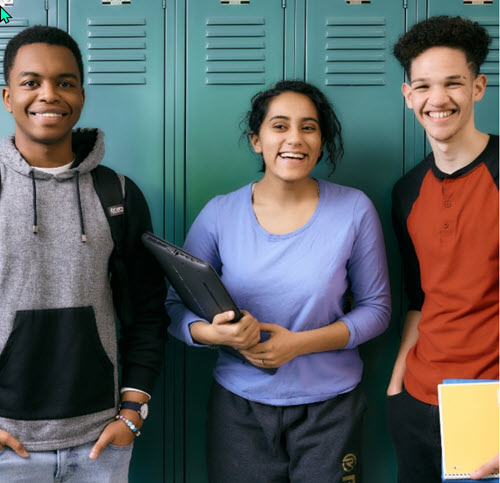Boston — Schools across the U.S. and in eight countries have started or renewed partnerships with VHS Learning this year to provide teacher-led, high school online courses in a variety of disciplines. Some have been partnering with the nonprofit organization for over 20 years.
“Online learning is a valuable tool that can help schools provide students with greater course variety and options for learning,” said Carol DeFuria, President & CEO of VHS Learning. “Schools around the world value our 26 years of experience educating students online, and many partner with us year after year. They trust our program to support their schools’ instructional needs and provide their students with comprehensive, interactive, and engaging online courses led by certified teachers.”
New international school participants this year include BIS in the Republic of Korea, Kingham Hill School in the United Kingdom, and Shanghai SMIC Private School in China. Returning schools include American Community School Abu Dhabi in the United Arab Emirates; Asia American International Academy in Taiwan, Province of China; Escola Americana de Belo Horizonte in Brazil; Qatar Academy Sidra in Qatar; and International School of Kigali in Rwanda.
In addition, many U.S. schools have continued their long-time partnerships with VHS Learning. Schools that have utilized VHS Learning for 20 years or more include three Massachusetts districts: Abington High School in Abington, Nipmuc Regional High School in Upton, and Northbridge High School in Whitinsville. Schools that partnered with VHS Learning over 15 years ago include Hampden Academy and Falmouth High School in Maine, and Bromfield School and Hopkins Academy in Massachusetts, Newmarket Junior-Senior High School in New Hampshire, and Hackettstown High School in New Jersey.
About VHS Learning
VHS Learning is a nonprofit organization with over 25 years of experience providing world-class online programs to students and schools everywhere. Offering more than 300 unique online courses for high school credit, including 25 AP® courses, credit recovery, and enrichment courses, VHS Learning is accredited by Middle States Association Commission on Elementary and Secondary Schools (MSA-CESS), Accrediting Commission for Schools, Western Association of Schools and Colleges (ACS WASC), and Cognia. Courses are approved for initial eligibility by NCAA. For more information about VHS Learning please visit https://www.vhslearning.org/ and follow on Twitter at @VHSLearning.
- CIESC Member Schools Gain Access to Metrasens Ultra Weapons Detection Systems Through New Partnership - April 24, 2024
- SchoolStatus Launches SchoolStatus Boost, an Innovative Educator Development Solution for Enhanced Teacher Growth and Development - April 22, 2024
- Frontline Education Releases Inaugural K-12 Lens Survey Report To Guide K-12 Decision-Making - April 20, 2024


